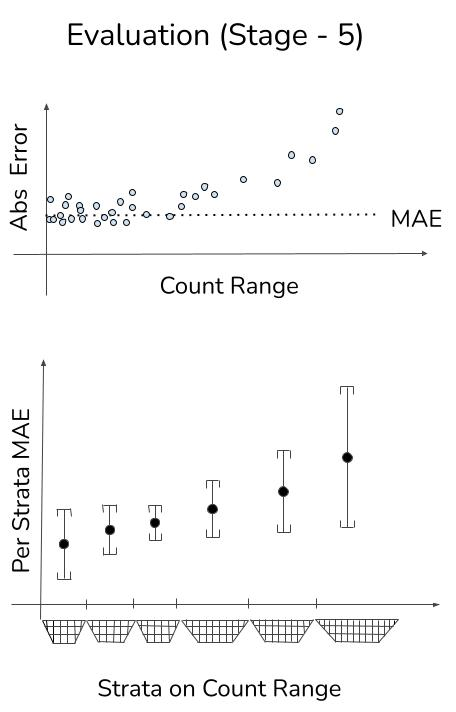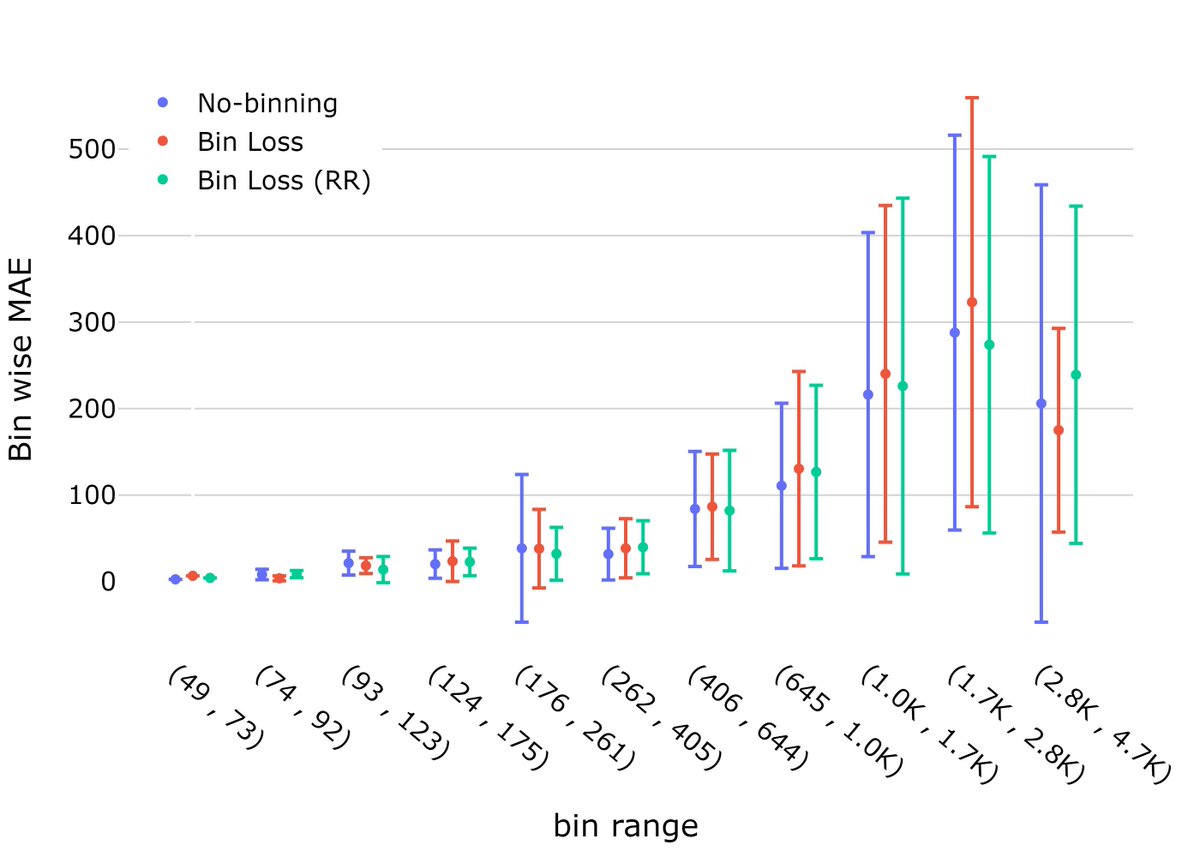
📢 In our #ACMMM21 paper, we highlight issues with training and evaluation of 𝗰𝗿𝗼𝘄𝗱 𝗰𝗼𝘂𝗻𝘁𝗶𝗻𝗴 deep networks. 🧵👇 

For far too long, 𝗰𝗿𝗼𝘄𝗱 𝗰𝗼𝘂𝗻𝘁𝗶𝗻𝗴 works in #CVPR, #AAAI, #ICCV, #NeurIPS have reported only MAE, but not standard deviation.
Looking at MAE and standard deviation from MAE, a very grim picture emerges. E.g. Imagine a SOTA net with MAE 71.7 but deviation is a whopping 376.4 ! 







How do we address this ? There is no easy answer. The problem lies all over the processing pipeline ! The standard pipeline for 𝗰𝗿𝗼𝘄𝗱 𝗰𝗼𝘂𝗻𝘁𝗶𝗻𝗴 looks like 👇 

ISSUE-1:Standard sampling procedure for creating train-validation-test splits implicitly assumes uniform distribution over target range. But benchmark dataset distribution of crowd counts is discontinuous and heavy-tailed. Uniform sampling causes tail to be underrepresented.
The problem is that sampling being done is too fine a resolution, i.e. individual counts.
OUR FIX: Coarsen the resolution. Partition the count range into bins optimal for uniform sampling.
OUR FIX: Coarsen the resolution. Partition the count range into bins optimal for uniform sampling.

We employ a Bayesian stratification approach to obtain bins which can be uniformly sampled from, for minibatching. 

ISSUE-2: Minimizing per-instance loss averaged over minibatch poses same issues as those during minibatch creation (imbalance, bias). OUR FIX: A novel bin sensitive loss function. Instead of loss depending only on error, we also consider count bin to which data sample belongs 

ISSUE-3: The imbalanced data distribution also causes MSE to be an ineffective representative of performance across the entire test set. 

OUR FIX: Instead of using a single pair of numbers (mean, standard deviation) to characterize performance across the *entire* count range, we suggest that reporting them for each bin. This provides a much broader idea of performance across count range. 

If a single summary statistic is still desired, mean and standard deviation of bin-level performance measures can be combined in a bin-aware manner. 

Bin-level results demonstrate that our proposed modifications reduce error standard deviation in a noticeable manner. The comparatively large deviations when binning is not used, can clearly be seen. 





Studying and addressing issues we have raised would enable statistically reliable 𝗰𝗿𝗼𝘄𝗱 𝗰𝗼𝘂𝗻𝘁𝗶𝗻𝗴 approaches in future. Our project page deepcount.iiit.ac.in contains interactive visualizations for examining results on a per-dataset and per-model basis.
Code and pretrained models can be found at github.com/atmacvit/bincr…
Our crowd counting paper can be read here
https://twitter.com/arxiv_cscv/status/1428729370135367694
... and this work is a happy collaboration with @ganramkr 😀
• • •
Missing some Tweet in this thread? You can try to
force a refresh







